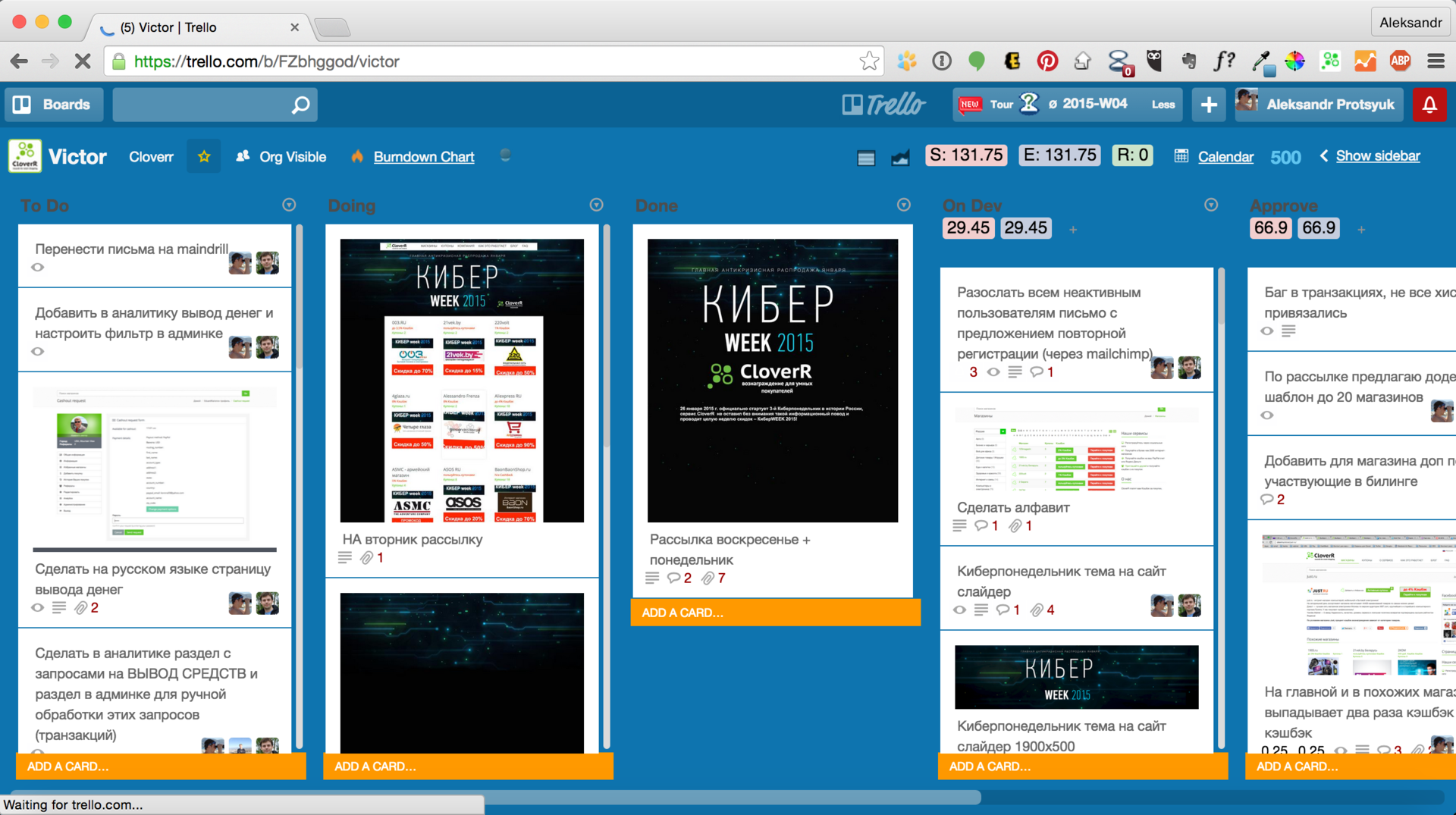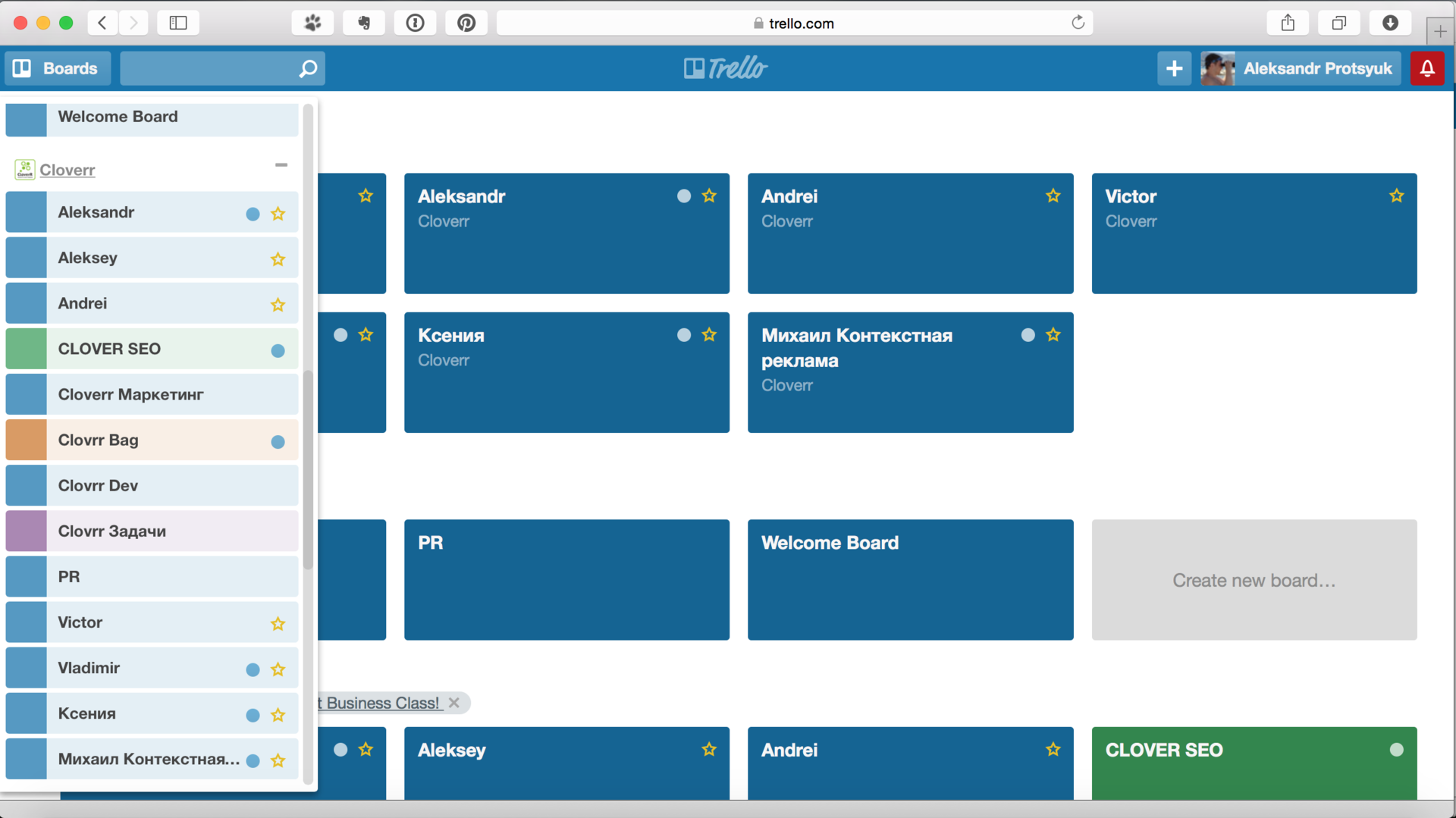Experience of organizing a remote team in kubish.ru

In this post we will talk about how remote work is organized in our cashback service kubish.ru , whose team is located on different continents and in different cities. Now the team members are in San Francisco, Chicago, Moscow, Vyborg, Yekaterinburg, Chelyabinsk, Tver, Perm, Kiev. Any innovations or discoveries will hardly be described here, but perhaps our experience will be useful for teams that are only thinking of moving to remote work.
Prerequisites
The company is based in Silicon Valley, but it also works in Russia, so remote work is dictated by necessity rather than by caprice or tribute to fashion. This method of work is not suitable for everyone, as we saw for ourselves personally by saying goodbye to several team members.
Modern trends
The trend of transition to remote development certainly takes place. This is understandable, given the development of the Internet, which has destroyed the boundaries for work on the Internet between cities and countries. Probably the most ardent supporters of remote development are the 37signals , who write interesting books like Rework on this topic, which everyone probably read. Small startups from the Valley, which we know, also often use the services of a remote team, which is cheaper. Large companies also resort to the services of remote outsourcers, because they cannot always find them nearby in a competitive battle for employees, the struggle for which has become even tougher.
Technology
-Trello
-Skype
-Google Hangouts
-Dropbox
-Google docs
')
Pluses of remote development
1. Remote team is much cheaper. If we consider the prices of Silicon Valley, then a good developer costs from $ 200k per year. For this money you can get 10 developers from Russia or Ukraine, especially if you consider the current dollar rate.
2. Remote employees are easier to find. This is a very simple and straightforward formula that says you can get more of the right people from a larger sample. If the sample is one city, then there are fewer candidates than the whole country or the whole world.
3. Reduced fixed costs. If you have a remote employee, it is not necessary to pay for office, equipment, etc.
4. It is easier to agree with a remote employee on a project work that occurs only in a certain period of time.
5. The ability to make good money to developers from small towns. The thesis “Where was born, there and useful” stops working for programmers, designers, marketers and other employees whose activities are related to the Internet.
Disadvantages of remote development
1. Requires a high degree of self-organization. This means that a specific developer must independently appear on remote stand-ups at the right time. It can be said that remote development most often stumbles over the rake of self-organization. If you go to the office every day, then you have a certain daily routine, which you stick to, but if you don’t need to go anywhere, then excesses can happen.
2. Difference in time. We very strongly feel this lack on ourselves, because our stand-ups often take place early in the morning and late in the evening, since the difference reaches 11 hours. When in Moscow 9 in the morning, in San Francisco 10 in the evening.
3. Lack of physical contact. When you work in an office, you can approach your colleague and pay attention to your task. With remote work, it remains to hope that the person will respond promptly in Skype.
Process
Since most of our developers are in Russia, we chose the stand-up time at 9 am Moscow time. We call each working day no matter what. We use Skype and Google Hangouts. A large part of the development team is participating in this call. We discuss past tasks and plan new ones. We solve strategic things and prioritize. These stand-ups are the engine of the whole development. Every Friday we sum up the week and plan the next one.
We also have conference calls at another time. Several calls in the evening and afternoon with other team members. For example, we discuss PR on Monday at 20:30 Moscow time.
Trello
We chose Trello as an accounting and tracking system. Previously tried Basecamp and Jira, but they did not take root. Trello is built on the Kanban methodology, which involves moving tasks from column to column, which is a very simple and clear visual tool.
This is how the trillo interface for our team looks like:

Each person has their own boards, on which his personal tasks are tracked, and there are also common boards for joint tasks.
Each member of the development team has the following sheets:
-To Do (assigned tasks, run from top to bottom)
-Doing (running tasks)
-Done (implemented tasks)
-on Dev (transferred to Dev)
-Approve (approved tasks)
-Close (closed)
All approved tasks are transferred to production. There are also boards with strategic objectives, which are then assigned to a specific performer. There is a board for bugs.
Here are some useful Trello batteries we use:
- Plus for Trello - track time
- Scrum for Trello - Scrum functionality
- Lovely for Trello - makes Trello a little more compact and beautiful.
Every week, based on the data in Trullo, we collect summary reports to Google Docs, which serve as a source for bookkeeping and financial analytics.
To promote we have a media plan in which we plan and record the results of the promotion. For convenience, we are working on it not in Trillo, but in the Google Village to see the picture for the week, the month. year.
In conclusion, we would like to note that remote work is a tremendous force for novice teams, which can be easily integrated into their business processes and which, with a sufficient degree of discipline, can become a powerful competitive advantage.
PS This week, the third in the history of Russia, Cyber-week 2015, took place, during which online stores made very big discounts, and in the next post we will describe how users were attracted to the cashback service kubish.ru during this event, as motivated the audience to buy and which channels were used to disseminate information.
Source: https://habr.com/ru/post/249307/
All Articles